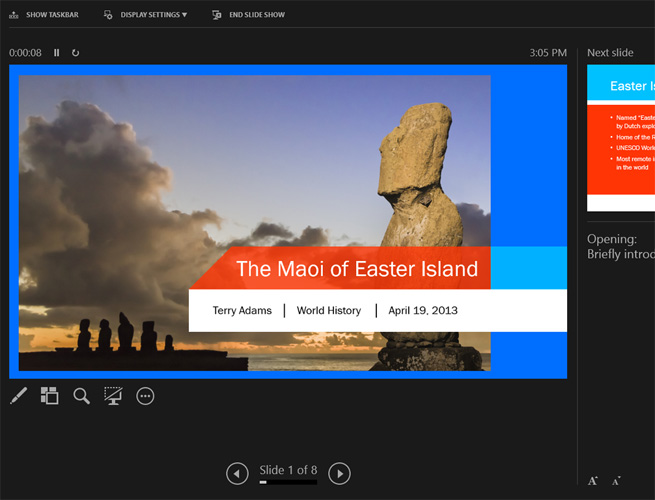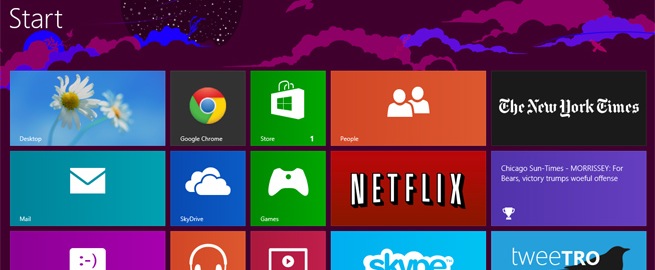If Microsoft wants to win in 2013, it needs to win in the mobile realm. That much is clear. But how does it take the crown from the likes of Apple and Google?
While Microsoft wouldn’t explicitly tell me about its plans for 2013 or generally talk about what it wants to accomplish, there is a lot we can glean from looking at what Microsoft did in 2012 and from the company’s previous statements. I’ve also talked to two experts who have kept close tabs on Microsoft’s product strategy over the years.
Here are three big things Microsoft will focus on in 2013:

Tablets, tablets, tablets
With the launch of the Surface RT and the Surface Pro, it’s clear Microsoft wants to be part of the tablet conversation. Microsoft was actually one of the first players in tablets back in the early 2000s, but the market shrugged off its efforts. Now that Apple’s iPad and Android tablets like the Nexus 7 have come to dominate the slate space and PC sales are falling off, Microsoft wants to get back in the tablet game.
“Microsoft will place a do-not-fail priority on tablets in 2013,” Forrester infrastructure and operations analyst David Johnson told me.
Johnson does not expect Microsoft to release its own smartphone hardware this year, so tablets will get full priority. Besides making Surface better, he said the other big priority will be making Windows RT lighter and better.
“I’d expect RT to be the focus for now, but they could do an entirely new tablet OS as well if that doesn’t work out,” Johnson said.

Office 365 and Office 2013
Another major tool in Microsoft’s belt is Office. Outside of Windows OS and Windows Server, Office has been the most important product in the company’s history. The latest version of the productivity suite for consumers just hit the market this week, and it’s actually quite nice.
Microsoft is pushing its Office 365 subscription service, which runs $100 per year, as the best deal you can get. A subscription to Office 365 lets you install five copies on your PCs or Macs and deeply connects to the cloud to back up your documents. Office 365 also gets you Office on Demand, which lets you stream a copy of Office to any Windows 7 or 8 PC and doesn’t count toward your number of installs. There’s also a version for students — Office 365 University, which costs $80 for four years of use.
The new versions of Office 365 and 2013 are more touch-friendly, so it’s somewhat better suited for tablets and touch-screen laptops. The most basic version of the latest Office comes pre-installed on the Surface RT tablet and will be able to be installed on the Surface Pro tablet, which hits stores on Feb. 9. A mobile version of Office also comes pre-installed on Windows Phone devices, one of the biggest selling points for that OS.
There have been perpetual rumors that Microsoft will release native Office apps for iOS and Android some time this year. But Microsoft has routinely denied these rumors.
“It’s not certain, but I’m betting on Office for iOS and Android,” Johnson said. “Enterprises won’t be proactively buying Surface Pros. Employees might not want to buy Surfaces, but they could buy iPads for work.”
Avi Greengart, research director for consumer devices at Current Analysis, also believes iOS and Android apps for Office are on the way.
“If Microsoft doesn’t put Office on those platforms, it risks losing that franchise,” Greengart said. “It’s also important for Microsoft to develop a more touch-friendly version of Office for Windows tablets. The version today is not there yet.”

Windows 8 and Windows Phone apps
The third pillar for Microsoft’s mobile success in 2013 will be apps built for Windows 8 and Windows Phone that help get people better interested in those platforms. Windows 8 and Windows Phone 8 together have millions of users, and the two even share a kernel so it’s easier to develop for both platforms at the same time.
“It’s all about apps,” Johnson said. “Apps on Windows Phone are good, but they’re not quite as complete as iOS and Android apps. 2013 will see a big push on app development.”
Windows 8 especially needs apps to get people excited about tablets like Surface and hybrid laptops like the Lenovo Thinkpad Helix or Samsung’s ATIV Smart PCs running that OS. A number of good applications already exist for Windows 8, but will the company invest further to make Windows 8 a must-have OS?
And better apps on Windows Phone certainly wouldn’t hurt either. Windows Phone sales haven’t been particularly impressive, but they could get better with smart productivity apps and imaginative Xbox games. Hell, the success of Microsoft’s Xbox console could arguably be traced back to exclusive titles like Halo and Halo 2, so why not have an exclusive set of games on Windows Phone to help turn heads?
Greengart thinks Microsoft needs to bring an exclusive Halo game to Windows Phone and improve the overall presence of Xbox on Windows Phone.
“Game exclusives could drive adoption of the Windows Phone platform,” Greengart said. “Why isn’t there a Halo application for Windows Phone? Where are the games that are branded with more than just your Xbox Live avatar? These issues need to be addressed.”
What do you think will drive Microsoft’s mobile destiny in 2013?
Steve Ballmer photo via Sean Ludwig/VentureBeat

